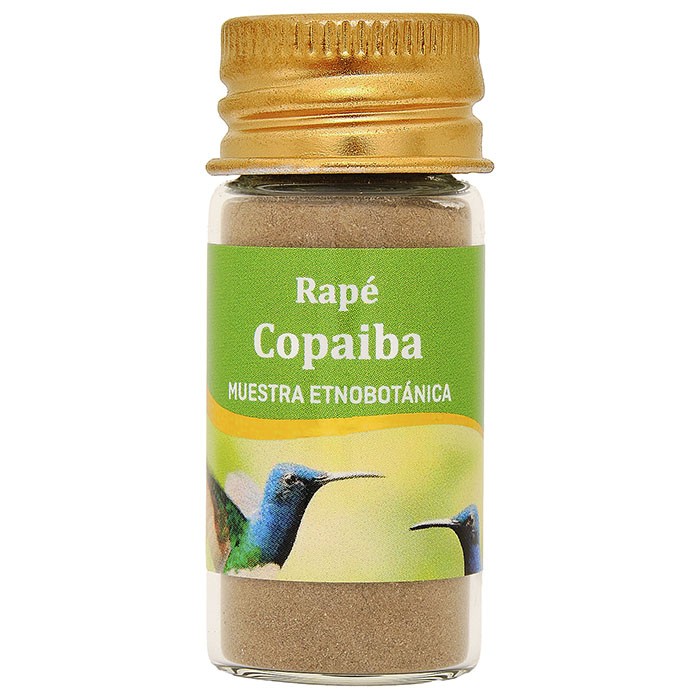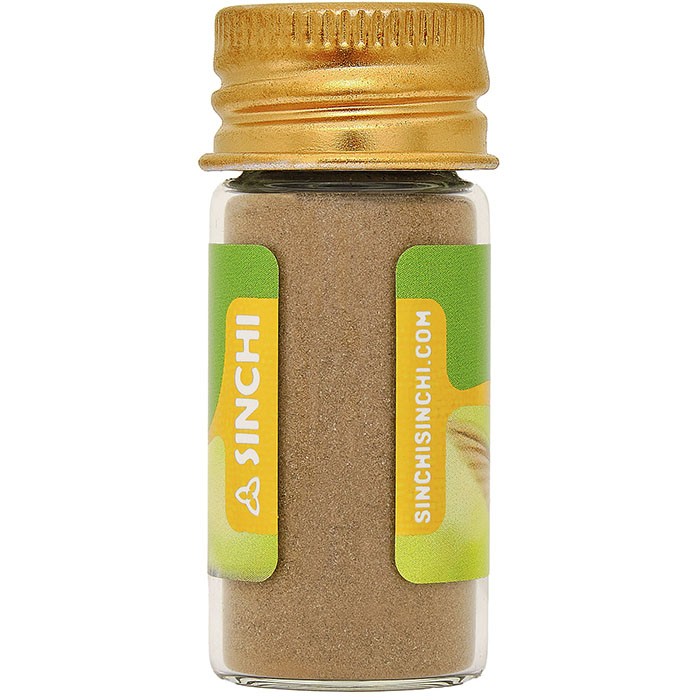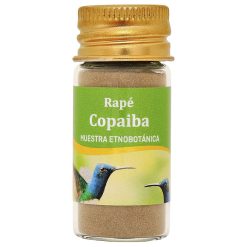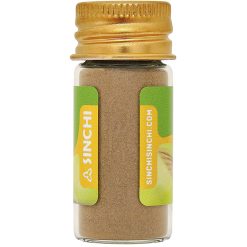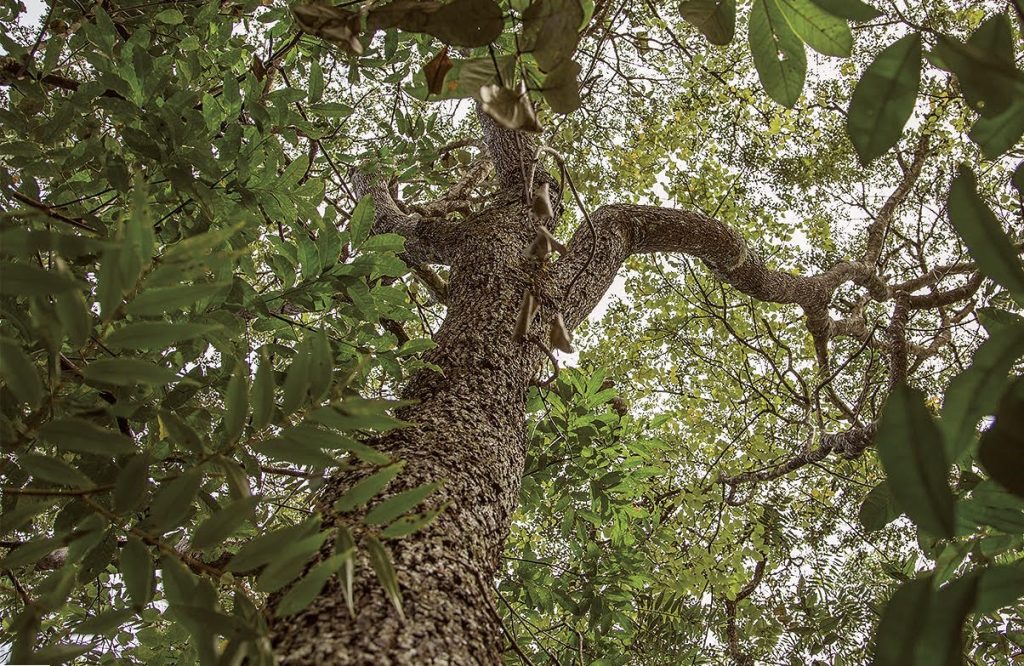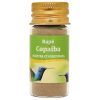Copaíba
28,00€
Copaíba Rapé is a strong variety, traditionally used on special occasions. It contains ashes from the trunk of the copaíba tree (Copaifera langsdorffii), traditionally used for physical cleansing, purging, and releasing tension.
With an earthy aroma, it provides a comforting, calming effect on the body and mind.
It raises the vibration, clarifies the mind, and promotes physical, mental, and emotional harmony and balance, working especially on the crown and heart chakras.
-Size: 10 ml bottles (8 to 9 grams).
-Use: Ethnobotanical curiosity.

